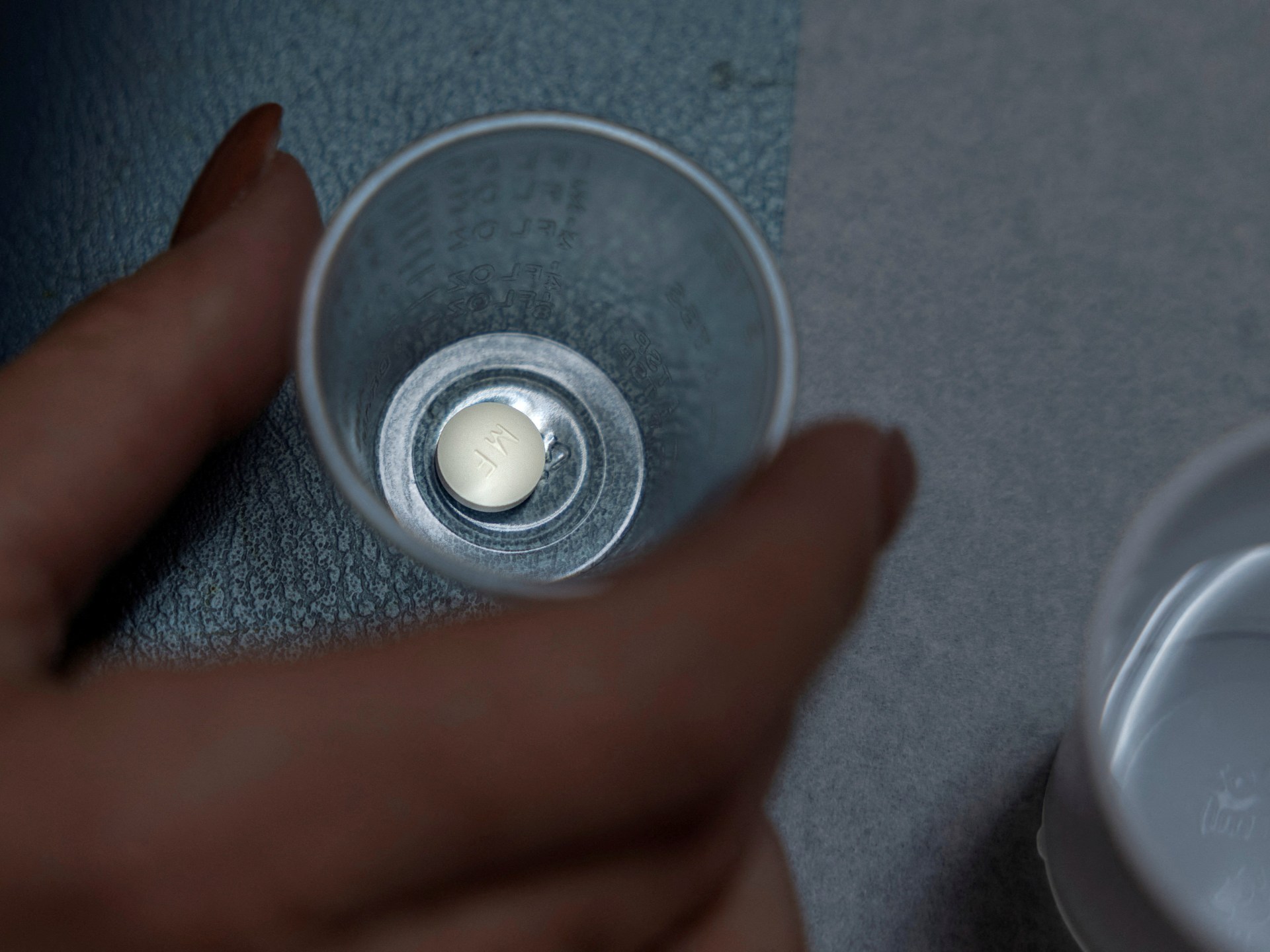Democrat-led states challenge US over abortion pill restrictions
Twelve states, led by Washington and Oregon, have filed a lawsuit against the United States government over access to the abortion pill mifepristone.
They accused the US Food and Drug Administration (FDA) of placing “particularly burdensome” restrictions on the pill, making it harder for patients to access the medication when they need it.
The lawsuit alleged that the FDA “has continued to hamper access by singling out mifepristone — and the people in the Plaintiff States who rely on it for their reproductive health care — for a unique set of restrictions”.
The availability of pills to end early pregnancy has become a pivotal battleground for reproductive rights in the US, particularly following the Supreme Court decision last June to overturn Roe v Wade, which previously upheld abortion as a constitutional right.
The states involved in the lawsuit, filed Thursday, included Washington, Oregon, Arizona, Colorado, Connecticut, Delaware, Illinois, Michigan, Nevada, New Mexico, Rhode Island and Vermont. All 12 are Democrat-led.
“The availability of medication abortion has never been more important,” the states wrote. “As states across the country have moved to criminalise and civilly penalise abortion, the Plaintiff States have preserved the right to access abortion care and have welcomed people from other states.”
Developed in 1980, mifepristone has been approved by the FDA since 2000 as the first part of a two-drug regimen to end pregnancies under 10 weeks. It is taken in combination with misoprostol, another pill.
According to the Guttmacher Institute, a reproductive health nonprofit, an estimated 54 percent of abortions in the US employ abortion pills, with that number expected to rise as telehealth increases the frequency of remote medical consultations.
But the FDA has categorised mifepristone under its Risk Evaluation and Mitigation Strategies (REMS) programme, a drug safety framework for “certain medications with serious safety concerns”.
The 12 states are pushing for the US District Court in the Eastern District of Washington to remove mifepristone from the programme.
They argue that mifepristone has been used more than five million times “with very low rates of complications” — and that the REMS designation puts the pill in a “very limited class of dangerous drugs”.
The federal government “has imposed REMS for only 60 of the more than 20,000 FDA-approved prescription drug products marketed in the US”, the lawsuit alleges.
“These cover dangerous drugs such as fentanyl and other opioids, certain risky cancer drugs and high-dose sedatives used for patients with psychosis.”
After a review, the FDA agreed to modify mifepristone’s REMS programme, effective on January 3, “to reduce burden on the health care delivery system”.
But under the updated guidelines, the pill must still be prescribed by a healthcare provider and dispensed under the supervision of a certified prescriber, with documentation signed and reviewed along the way.
That “burdensome documentation”, the states wrote, was making “telehealth less accessible and creating a paper trail that puts both patients and providers in danger of violence, harassment and threats of liability amid the growing criminalisation and outlawing of abortion in other states”.
In its description of mifepristone, the FDA warned that any kind of abortion, miscarriage or childbirth carries the risk of “serious and potentially life-threatening bleeding, infections or other problems”. But it underscored that those risks are rare, and that there was no information that mifepristone has caused any deaths.
Thursday’s lawsuit came in the wake of another legal challenge to abortion pill restrictions in North Carolina and West Virginia, filed in January.
The challenge, brought by a physician and the drug company GenBioPro, alleged that the states have violated federal authority in restricting a pill deemed by the FDA to be safe and effective.
And this month, a Texas judge, appointed under former Republican President Donald Trump, is expected to rule in a case that could overturn the FDA’s approval of mifepristone.
As of January, 13 states have bans on abortion at all stages of pregnancy, and 19 have laws controlling the prescription and use of abortion pills.
By contrast, some of the states involved in Thursday’s lawsuit — including Michigan, California and Vermont — have taken steps to protect abortion access in their constitutions.




